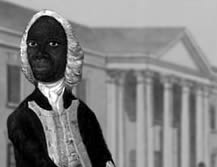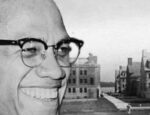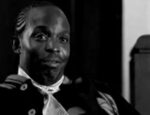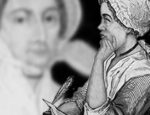Description
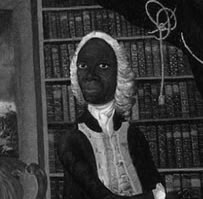 Meet Francis Williams (1702?-1770), Jamaican scholar, teacher, and composer of Latin verse. Born to a free black couple in Jamaica, where at the time of his death there were more than two hundred thousand slaves of African origin, his status was anomalous. He became the subject of a social experiment by John, Second Duke of Montagu, the Governor of two other islands in the West Indies. Montagu wanted to discover whether a black youth, if educated at grammar school and Cambridge, could be educated to the same level as a white man.
Meet Francis Williams (1702?-1770), Jamaican scholar, teacher, and composer of Latin verse. Born to a free black couple in Jamaica, where at the time of his death there were more than two hundred thousand slaves of African origin, his status was anomalous. He became the subject of a social experiment by John, Second Duke of Montagu, the Governor of two other islands in the West Indies. Montagu wanted to discover whether a black youth, if educated at grammar school and Cambridge, could be educated to the same level as a white man.
Williams became adept at mathematics and Latin, although it can’t be proven that he completed the BA degree at Cambridge, and eventually returned to Jamaica. He wanted to take up a seatin the Jamaican Assembly but was prevented by the governor Edward Trelawny objected to this. So Williams set up a school in Spanish Town, where he taught the three Rs and Latin.
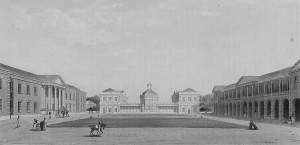 Williams seems to have been severely disorientated by the experiment conducted upon him; some (white) Jamaican residents complained that he internalised white racism and treated other black Jamaicans with hauteur and contempt. He certainly did not oppose British rule; indeed, many of his competent Latin poems are odes to incumbent governors. His best known Latin poem was written in honour of the Scotsman George Haldane, appointed governor in 1756, about ten years after the above anonymous portrait of Williams, now in the Victoria and Albert Museum, was painted. The poem, reminiscent of the praise poetry of Roman poet Horace, now makes painful reading. Williams wrestles with his identity as a black man, who though perfectly aware that he is capable of writing Latin verse, is still reluctant to question the white colonial values and racist ideology—let alone the system of slavery—that blights his land. In particular, he compares himself negatively with the sixteenth-century Scottish Latin scholar and translator George Buchanan, using expressions of self-deprecation that go well beyond those expected in the Roman poetic form (the ‘recusatio‘) he was skilfully employing:
Williams seems to have been severely disorientated by the experiment conducted upon him; some (white) Jamaican residents complained that he internalised white racism and treated other black Jamaicans with hauteur and contempt. He certainly did not oppose British rule; indeed, many of his competent Latin poems are odes to incumbent governors. His best known Latin poem was written in honour of the Scotsman George Haldane, appointed governor in 1756, about ten years after the above anonymous portrait of Williams, now in the Victoria and Albert Museum, was painted. The poem, reminiscent of the praise poetry of Roman poet Horace, now makes painful reading. Williams wrestles with his identity as a black man, who though perfectly aware that he is capable of writing Latin verse, is still reluctant to question the white colonial values and racist ideology—let alone the system of slavery—that blights his land. In particular, he compares himself negatively with the sixteenth-century Scottish Latin scholar and translator George Buchanan, using expressions of self-deprecation that go well beyond those expected in the Roman poetic form (the ‘recusatio‘) he was skilfully employing:
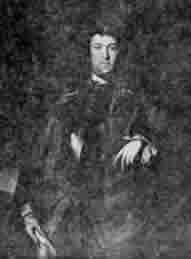 ‘Know well, man dear to Mars, that it is not my part as an African to sing about the wars of military leaders.
‘Know well, man dear to Mars, that it is not my part as an African to sing about the wars of military leaders.
Buchanan should sing of you, Achilles’ equal, and write about you in the assembly and in arms. That poet, the glory of his homeland, is more worthy to recount you deeds, he is scarcely less accomplished than the sublime Vergil. We live under a sun that drives its own flame-bearing team. All eloquence is lacking in our homes. Accept this then, coated in soot from a mouth trying to sing. Its power comes not from the skin, but from the heart. Set up by a powerful hand (nourishing God, denying nothing, has given the same souls to all kinds), virtue itself is colorless, as is wisdom. There is no colour in the soul, nor in art. Why do you fear or why do you hesitate, my very black muse, to climb up to the lofty house of the western Caesar? Go and greet him. Let there be no reason for you to be ashamed that you have a pure (white) body in a black skin.
Worth of character, fire of intellect and sweet grace in a learned mouth decorate an African to a higher degree. A wise heart, love of virtue and of country distinguish him more from his comrades. The island gave me birth, famous Britons brought me up. The island will not suffer while you, its father, are safe.’

